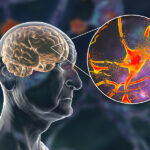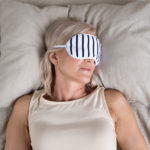By David Blyweiss, M.D., Advanced Natural Wellness
April 11, 2014
- Preventable risk factors account for almost half of all Alzheimer’s disease cases
- Monumental scientific breakthrough recognizes one single factor cleanses the brain of toxic molecules
- 4 ways to flip on your “brain-cleaning switch”
A lot of my patients are baby-boomers. And these days, most of them are doing everything they can to make sure they don’t “end up” like their parents.
Some of the biggest concerns I hear about are Alzheimer’s disease, dementia and memory loss. A lot of these folks have watched – or are currently watching – a parent or grandparent fade into confusion and bewilderment. In fact, there are over 15 million Americans who are unpaid caretakers for Alzheimer’s or dementia patients, where payments for care in 2012 ran to over $200 billion.
Nobody wants to go down that road as they enter their 70s, 80s or 90s. So today, many people are ready to do whatever it takes to ward off these terrible conditions.
Unfortunately, science hasn’t given us a lot to work with. What causes Alzheimer’s disease to start with? What can we do to avoid it?
Well, there are preventable risk factors that account for almost half of all Alzheimer’s disease cases.
Inflammation is one of the most apparent. High levels of advanced glycation end products (AGES) and inflammatory markers like homocysteine are quite common among seniors with Alzheimer’s disease. And it’s not difficult to take steps to control both of these factors to reduce your risk of mental deterioration.
But today, there may be even more you can do to protect your memory. According to Lancet Neurology, “A 25% reduction in seven risk factors could potentially prevent as many as three million cases of Alzheimer’s disease worldwide”…
MD Exposes the Hidden Danger to Your Eyes

When your eyesight starts to fail, it's a real problem. Suddenly you can't go to the grocery store... you can't get to the doctor if you have an emergency... you can't meet your friends for dinner…
Your "regular" doctor doesn't have time to keep up with the latest research. And the same goes for eye doctors. They go to school to learn how to fit you for glasses and contacts, but have no way of preventing the damage and loss of eyesight that threatens your freedom and independence.
Let me show you something that explains a LOT about how your eyes work.
In my FREE Special Report, I'll show you a HUGE, untapped resource for your eyes that safely and naturally restores clear, effortless eyesight.
Click here to get started...
- Quitting smoking
- Increased physical activity
- Increased mental activity
- Controlling diabetes
- Controlling blood pressure
- Managing depression
- Managing obesity
I’m also very excited by some truly groundbreaking developments that are giving us a great deal of new insight into how the brain works.
If the new theories are correct, there may be one more factor in your life that could have a huge impact on preserving your memory… and reducing your risk of Alzheimer’s disease.
It’s something you do every single day, but you could probably be doing it just a little bit better…
Recently, we’ve discovered that, in addition to inflammatory factors, people who sleep poorly are more likely to develop beta amyloid deposits. These deposits, or plaques, are believed to be the #1 culprit in the development of Alzheimer’s disease, but not in the way you may think.
It appears that plaque formation may be the brain’s way of trying to protect itself from daily oxidative stress assaults, as well as from old circulating viruses and bacteria, all producing sustained inflammation.
We’ve also learned that when older adults don’t get enough deep sleep, they tend to lose short-term memories. For some reason, these memories never get moved to “long-term storage” in the brain.
Why does this happen? How can sleep affect the brain in this way?
Well, today we might have some answers.
Thanks to a monumental scientific breakthrough, we’re now recognizing that a good night’s sleep might actually cleanse the brain of toxic molecules. This is huge!
This new information could have a huge impact on the fight against Alzheimer’s disease and other memory problems.
You see, while you’re awake, all sorts of toxic substances build up in your brain. The longer you’re awake, the more garbage piles up – including beta amyloid, the protein that forms brain plaques associated with Alzheimer’s disease.
Are You Suffering From...
- Love handles and a pot belly
- Romance that isn't what it used to
- Forgetfulness and inattention
- Low (or no) strength and endurance
- A sex drive that's shifted into neutral...or worse
If so...you may have Mature Male Burnout. Click here to discover more about this unique condition and what you can do about it.
So, why doesn’t everyone have tons of this plaque building up in their brains?
Well, here’s what we’ve learned…
The brain has a “drainage” system (the glymphatic system) that flips on when you fall asleep. Once it’s activated, large amounts of space open up between the cells of your brain. This allows cerebrospinal fluid to rush between brain cells and pick up toxic waste products.
This process flushes all the inflammatory garbage accumulated during the day out of your brain, including beta amyloid. All of this “trash” is then delivered to the liver, where it’s broken down for disposal.
When you wake up in the morning – or at any time during the night – this process immediately turns itself off, and waste begins accumulating again.
Now, here’s the problem…
Back in the “old days,” people didn’t have trouble sleeping the way we do today. There were no electric lights, televisions, computers, cell phones or iPads shining light into their eyes all night to disturb their sleep.
They worked hard all day and went to sleep around sundown or shortly thereafter. And if they didn’t meet an untimely death, they were still active and working well into old age – not sitting in a nursing home with Alzheimer’s disease.
Here’s what you can do to turn on your “brain-cleaning switch” and get a deep sleep that lasts all night long…
Participate in plenty of daytime activities and exercise. Take a tip from your ancestors and stay active during the day. Getting plenty of regular exercise and staying on the move will promote a deep and healthy sleep. But you don’t want to exercise too late at night. It will rev you up and make it harder to fall asleep. So, try and get your final exercise or workout session completed a good four to five hours before bedtime.
Shut down the electronic devices. About an hour before you want to fall asleep, turn off the computer and television, and dim most of the lights in your house. When you go to bed, turn off all lights completely, and put away the cell phone, iPad, Kindle and any other devices. The less light and noise you’re exposed to overnight, the better you’ll sleep.
Go to bed at the same time each night. If your sleep schedule is erratic, it can be hard to fall into a deep sleep and stay there. Develop a regular sleep pattern by hitting the sack at the same time each night and arising at the same time each morning. If your schedule is really out of whack, you can try supplementing with 1 to 4 mg. of melatonin about an hour or so before bedtime each night.
Sleep longer – and more deeply – with valerian and hops. Valerian is a well-researched sleep herb that works just as well as a prescription sleeping aid, but does it naturally. When you combine valerian with hops, it can improve both your quality of sleep and the amount of time you spend in deep sleep.
The research between sleep and brain clearance is in its infancy right now. But one thing is quite clear: People who don’t get a good night’s sleep are more prone to memory problems and Alzheimer’s disease.
Don’t wait! Start practicing healthy sleeping habits as soon as you can to help protect your memories and brainpower.
Resources:
Frisoni G, et al. “Revised Criteria for Alzheimer’s Disease: What are the lessons for physicians?” Lancet Neurology. Vol.10, Issue 7, Pgs.598-601, July 2011.
Ju YE, et al. “Sleep quality and preclinical Alzheimer disease.” JAMA Neurol. 2013 May;70(5):587-93.
“Poor sleep in old age prevents the brain from storing memories.” UC Berkeley News Center. Jan. 28, 2013.
Adam P. Spira. “Self-reported Sleep and β-Amyloid Deposition in Community-Dwelling Older Adults.” JAMA Neurology, 2013.
NIH/National Institute of Neurological Disorders and Stroke. “Brain may flush out toxins during sleep; Sleep clears brain of molecules associated with neurodegeneration: Study.” ScienceDaily, 17 October 2013.
Ziegler G, et al. “Efficacy and tolerability of valerian extract LI 156 compared with oxazepam in the treatment of non-organic insomnia–a randomized, double-blind, comparative clinical study.” Med Res. 2002 Nov 25;7(11):480-6.
Dimpfel W, et al. “Sleep improving effects of a single dose administration of a valerian/hops fluid extract – a double blind, randomized, placebo-controlled sleep-EEG study in a parallel design using electrohypnograms.” Eur J Med Res. 2008 May 26;13(5):200-4.






